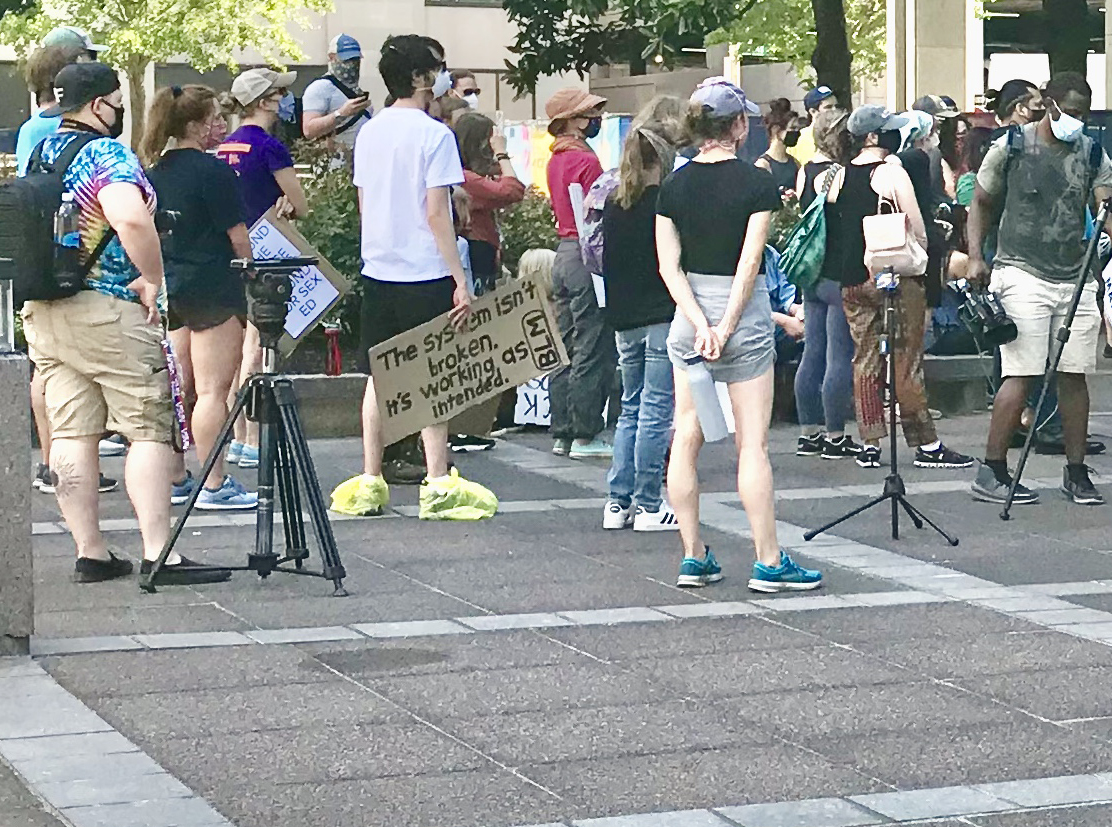By G. Wayne Dowdy
In another letter to Colonel John McLeod Keating, managing editor of the Memphis Appeal newspaper during the 1878 yellow fever epidemic, your correspondent describes how the anger many feel against law enforcement was directed at him during a protest at city hall.
Dear Colonel Keating:
Americans continue to pour into the streets to demand an end to systemic racism and police brutality. Another black citizen, this time in Atlanta, was killed by excessive force wielded by a police officer. Meanwhile, Memphians have shown great courage and restraint in peacefully marching and protesting against these evils.
On Tuesday I attended a demonstration at City Hall, apparently organized by the Democratic Socialists of America. I was there to document this moment in our history, as I’ve been doing since March.


When I go to these things I always stay in the background so I don’t get in the way. After taking a few photos, I moved to a new position and it was there that I found myself the target of unreasonable rage.
A young man approached me and I said, “Hey, how are you?” In response he got even closer, than pointed his phone in my face, and took my picture. I explained to him who I was and what I was trying to do, but he raised his voice and asked, “Don’t you think the police have spies out here?”
I replied that I didn’t think a spy would be wearing a city badge with the word library on it. Then a young woman walked up screaming and cursing at me. She claimed I didn’t have permission to take photos and that I had an “attitude.” She was correct. I took offense at being criticized for doing what I have a right to do.
I gave her my name and she said to me “I don’t give a f— who you are, you need to leave.”
The worst thing I said to her was, “this is ridiculous, I’m just trying to document this story.” “Don’t call me f—-ng ridiculous!” she screamed.
I soon left and on the drive home, I reflected on what just happened.
I am used to dealing with angry and unstable people at the library, so I approached the situation as a citizen interaction rather than a street-level dispute. As a public employee, I have an obligation to listen to citizen complaints, even when they lack reason or logic. However, it was very uncomfortable being treated as a criminal for doing nothing wrong. I was frustrated and angry at being treated so unfairly.
They may not have realized it, but those two protesters were looking on me the way police often view black citizens. It helped me understand, even for just a moment, how it feels to live under white police supremacy. I suspect many white people would benefit from such experience. Police officers can also be looked upon with a suspicious eye, and I understand how angry and bitter that can make you feel.
However, there is a big difference between the police and me. No matter how insulting or threatening a citizen becomes, and no matter how angry I feel, I cannot use force on them. If I did, I would lose my job and be arrested. In many cases, law enforcement can take out their stress and frustrations on the citizenry without consequence. The lack of accountability is really the root of the problem.
Unpleasant though it was, those few moments outside city hall helped me focus on the many challenges we all face in this rather dubious 21st Century. I don’t know if we can understand each other enough to overcome these monstrous wounds, but I hope so. We can perhaps start by trying to understand those who attack us. <>
That’s the way Memphis is on the 17th day of June, in the year of our Lord 2020.
I remain,
your faithful correspondent
G. Wayne Dowdy

